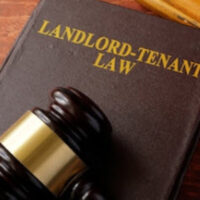

It is very common for people to sublet their apartments for the summer or the winter (depending on location). However, just because this practice is legal in some places does not mean it is legal in others, and even if it is legal where you are, your individual lease may not allow it. It is always a good idea to investigate your options before embarking on any path involving your home; the stakes are simply too high.
Q: Is It Illegal?
A: As of this writing, Florida law does not discuss subletting in any way, which means that there is no legal bar to the practice. However, when the law does not discuss an issue, the deciding factor in a dispute is the contract (if any) between the two parties. This means that if you want to sublet your apartment, but your lease forbids it, you must abide by the lease because you agreed to its terms when you signed it. If your lease has nothing in it that discusses subleasing, the decision will generally be up to your landlord.
Q: If my landlord says no to a sublease, is that decision final?
A: The answer is ‘usually.’ Leases are contracts, and contracts generally cannot be materially altered without the consent of both parties. However, Florida law does say that a landlord’s refusal of a sublet must be reasonable – namely, related to a tangible, profit-based motive. A landlord may not simply issue a blanket denial to all potential subleases if one is not in the lease. In some cases, conversely, a landlord may give their implicit consent to a sublease; if they accept rent from the subtenant, they are held to have implicitly agreed to the sublease by accepting payment.
Q: Is a subtenant entitled to the same rights and privileges as I am?
A: Generally, a subtenant receives the same rights and benefits as the main tenant if they legally sublet an apartment. This includes the right to “private, peaceful enjoyment” of the dwelling, as well as requiring the landlord to pay for any repairs to the apartment that were not caused by the tenant themselves. The one deviation from the standard picture is that if eviction proceedings become necessary, the primary tenant must deal with the subtenant instead of requiring the landlord to do so directly.
Q: What happens if I sublease my apartment without my landlord’s consent?
A: If you decide to sublease your apartment despite not being permitted to do so, your landlord has the right to evict both you and the subtenant, and can generally put everyone on notice at once – though they must give you a 7-day notice period before filing an eviction action. In most cases, you will be evicted if it can be shown that you had a sublease agreement with the subtenant – if you lack your landlord’s consent, doing this will generally put you in breach of your lease, and Florida courts will side with the landlord over a tenant who is clearly in breach.
Contact A Tampa Subleasing Attorney
Subleasing is a good way for a person to ensure their apartment is taken care of during a period where they might be absent. However, one cannot simply jump into subleasing without ensuring that they are within their rights as a tenant first. If you have questions or concerns about subleasing your apartment, Tampa landlord/tenant lawyer Alicia Seward may be able to assist you. The Seward Law Office has handled many of these cases, and can try to help with yours. Contact our offices today at 813-252-6789 to speak to an attorney.